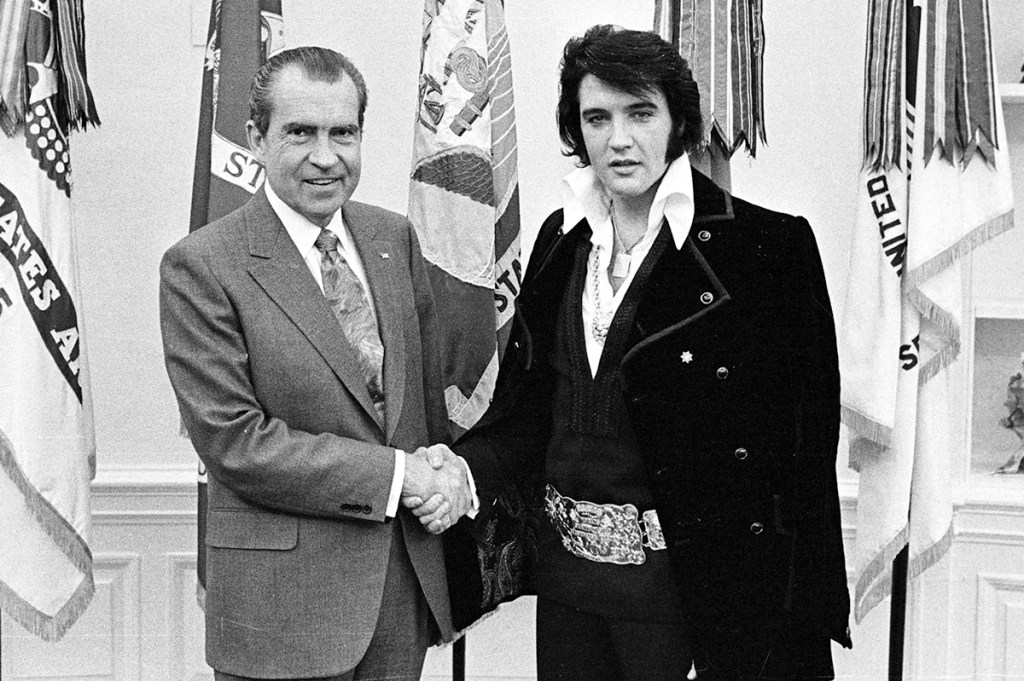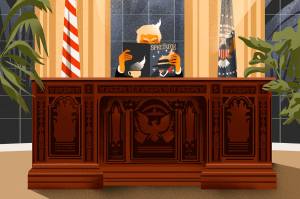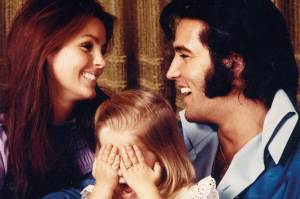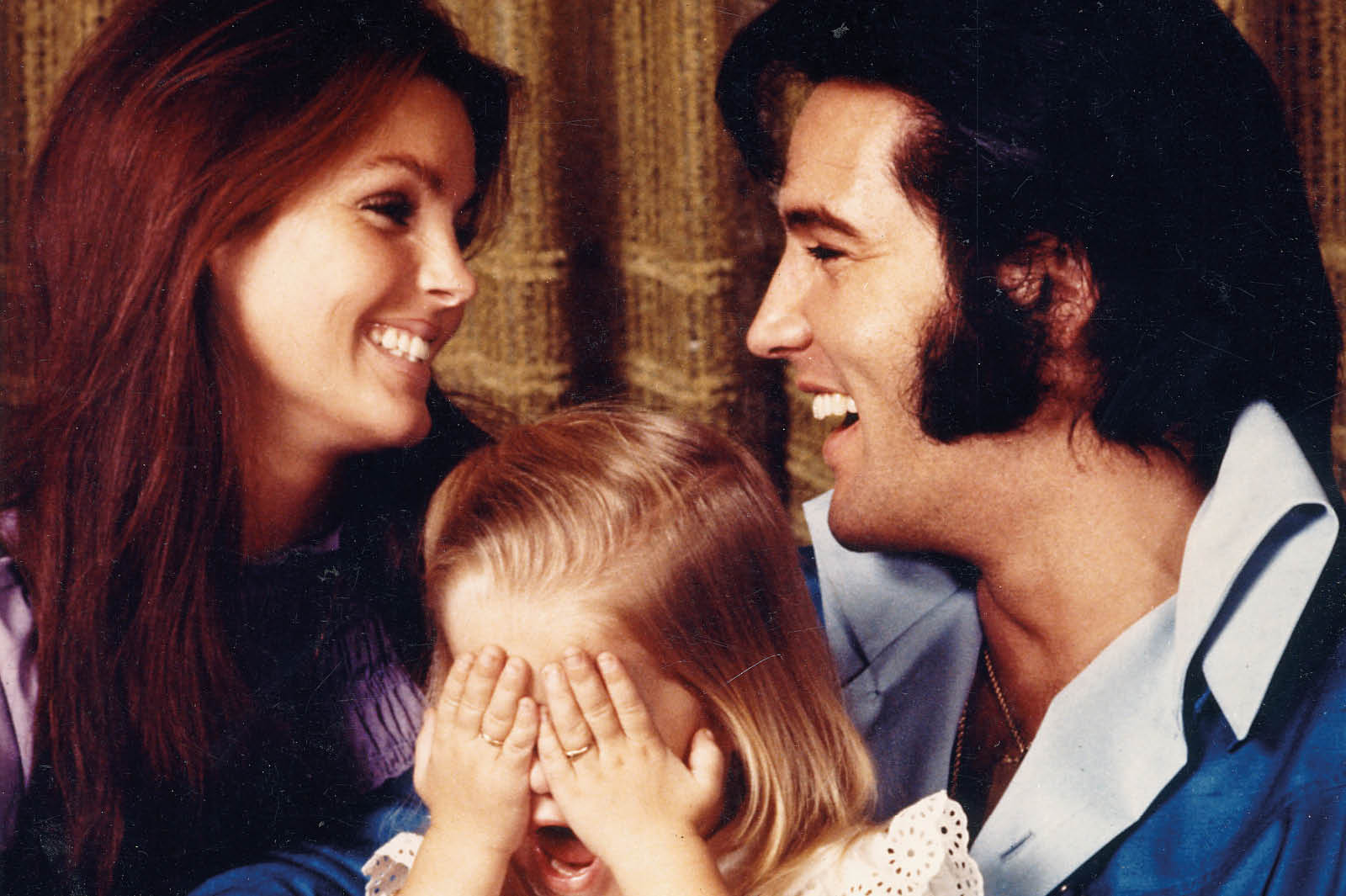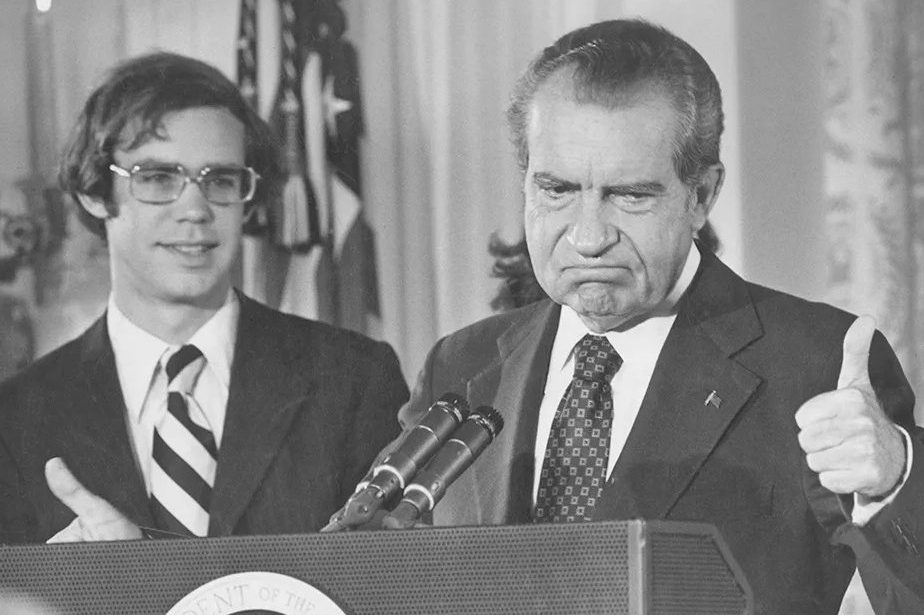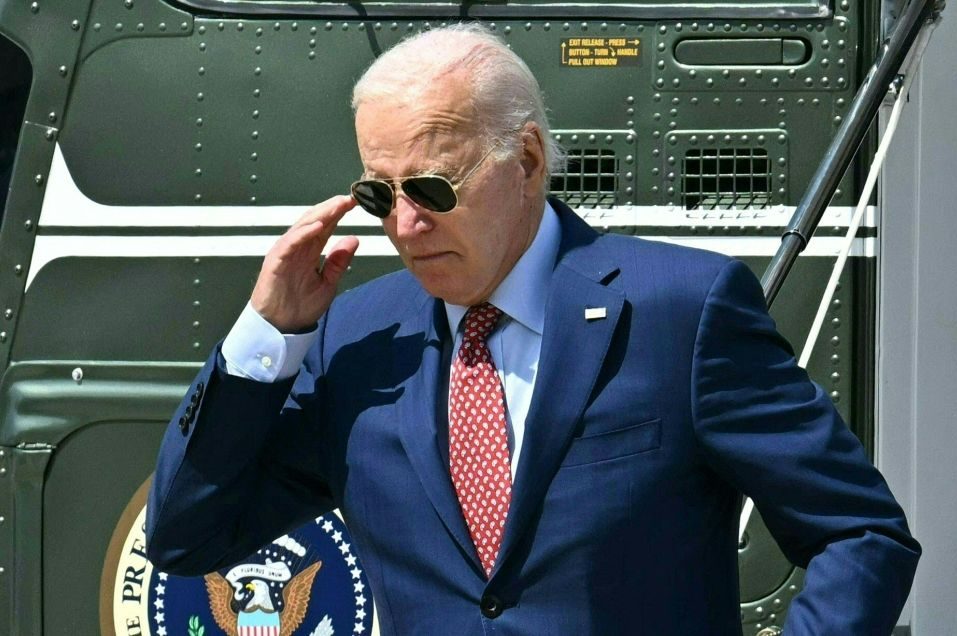If you were called upon to invent the human antithesis of rock and roll, you couldn’t do better than our nation’s 37th president, Richard Nixon. Habitually clad in a funereally dark suit and dress shoes, even when strolling on the beach, Nixon’s tastes in music ran to the semi-classical strains of Mantovani and the Boston Pops, and a penchant for sitting alone at night brooding to Wagner. I once asked the legendary White House fixer Gordon Liddy what his chief thought, if anything, about pop music. ‘Crap,’ Liddy replied succinctly.
In late 1970, the 57-year-old Nixon was at something of a low point. A combination of the continuing war in Vietnam and domestic economic woes proved disastrous for the GOP in that November’s midterm elections. An angry mob of protesters dented the president’s car as the Secret Service went into an assassination alert when he stumped for a congressional candidate in San Francisco. From there a shaken Nixon flew to his estate in San Clemente, and almost succeeded in burning the house down while trying to light a fire in his study. When Henry Kissinger and others arrived for a meeting that evening, they found the home filled with smoke and the president wandering around in his bathrobe.
Elvis Presley similarly faced something of a crisis in his affairs. Aged 35, the ‘King’ of rock and roll was on the cusp of his rhinestone-clad twilight. By late 1970, his movie career was dead and he’d failed to keep up musically with the likes of Jimi Hendrix and other psychedelically flavored rockers. He was also taking vast amounts of prescription drugs. Following a blazing argument with his wife on the afternoon of December 19, Elvis hopped on a plane to DC and on to LA, where he grabbed a framed World War Two Colt.45 pistol off the wall of his home there and — after expressing surprise that an airline might object to his carrying that and a multitude of other guns onto a plane — took the redeye flight back to DC.
During the journey, a now thoroughly stoned Elvis spoke with Sen. George Murphy, who happened to be on the same plane. Elvis asked Murphy how he could help in the fight against narcotics, and Murphy suggested going straight to the top. Then and there, on American Airlines stationery, Presley started writing an impassioned five-page letter to Nixon:
‘Dear Mr President,
‘I am Elvis Presley, and I admire you and have great respect for your office… Sir, I can and will be of any service that I can to help the country out… I wish not to be given a title or an appointed position. I can and will do more good if I were made a Federal Agent at Large, and do it my way through my communications with people of all ages… I have done an in-depth study of drug abuse and Communist brain-washing techniques and I am right in the middle of the whole thing…’
At about seven the next morning, a limo pulled up at the gate of the White House and Elvis delivered his note to the suitably startled guard. From there it went to the desk of 30-year-old Egil ‘Bud’ Krogh, who was charged with coordinating the administration’s narcotics policy. Nixon contained his excitement on being told that one of the world’s most famous entertainers was asking to meet him, but apparently relented after pressure from his younger daughter, Julie.
When Elvis returned to the White House at about 12:30 p.m., he told Krogh that he had a gift for the president. This turned out to be the Colt.45 that the King had taken from his wall, and the Secret Service relieved him of it as he strode towards the Oval Office wearing sunglasses, a purple velvet suit with a gold belt and a cape, his white silk shirt splayed open to display a chestful of gold medallions.
Nixon jumped up when his visitor entered the room, saying, ‘It’s very good to meet you, Mr Presley. I appreciate your offer to help us with the drug problem.’ After a few pleasantries, the King suddenly remarked to the president how difficult it was to play in Las Vegas. Nixon was sympathetic. ‘I understand Vegas is a tough crowd,’ he agreed. At that Elvis said, ‘And you know, the Beatles came over here and made a lot of money, and said some un-American things.’ Krogh was watching from the corner of the room, and remembered Nixon looking at him as if to say, ‘Huh? The Beatles?’
After some more desultory talk about the size of their respective homes (Elvis thought his ‘kinda like this one’), the King came to the real point of his visit. He wanted a badge from the Bureau of Narcotics, allowing him to become a federal agent. Nixon looked at Krogh, and Krogh said, ‘Well, sir, if you want to get him a badge, we can do that.’ Nixon said, ‘Well, get him one.’ Elvis was so pleased by this that he stepped around the side of the desk, hoisted the president out of his chair and hugged him, surely the most surreal moment of the visit and quite possibly of the entire Nixon administration.
After freeing himself from Elvis’s embrace, Nixon reached inside his desk drawer and began to pull out the standard issue souvenir matchbooks and pens for his guest. Elvis brushed Nixon aside and reached further back in the drawer to help himself to a handful of the gold cufflinks and framed presidential portraits normally reserved for visiting heads of state. ‘My boys’ll appreciate this’, he told his dumbstruck host.
After that it remained only for the White House photographer to take a snapshot of the encounter. At one time dismissed as a computer-generated joke, it is the single most requested image in the US National Archives.
While Nixon hurried off to address 150 White House volunteers in the State Dining Room, an ecstatic Elvis flew home with his badge. ‘It represented some kind of ultimate power to him,’ his wife, Priscilla, wrote in her memoir, although in later years Elvis expressed disappointment that it didn’t allow him to legally enter any country wearing guns and carrying any drugs he wished.
This article was originally published in The Spectator’s January 2021 US edition.



